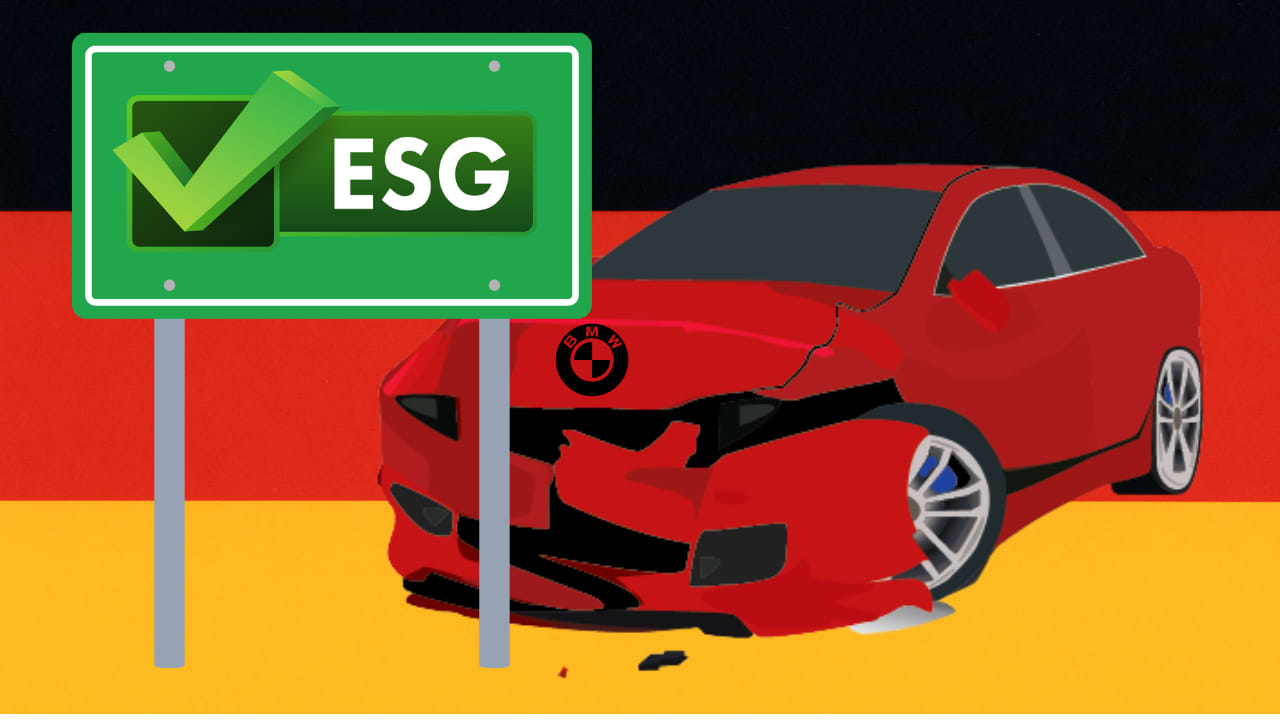Is German Deindustrialization Underway?
Germany, Europe’s New ‘Problem Child,’ Has a Series of Self-Inflicted Issues

Germany has long been thought-of as Europe’s economic engine. In past decades, the strength of German manufacturing and its export of luxury cars, chemicals and factory equipment could single-handedly pull the entire continent out ofeconomic slowdowns. Slower growing economies in Europe, such as Italy’s, were directly tied to the fortunes of German manufacturing.
Today, however, France, the U.K. and even Italy are expected to grow faster than Germany, and the IMF ranked Germany’s growth as the slowest of all G-7 countries.
Dekabank’s Andreas Scheuerle, speaking to Bloomberg, said, “Germany is Europe’s problem child in many respects. Nowhere else are supply shortages hurting the economy more, the shortage of skilled workers has increased, and then of course there’s our extremely high dependence on Russian gas.”
[See BankerAdvisor’s listing of all Germany-based banks]
Scheurerle predicted a winter recession and added, “A good decade has ended for Germany -- from here on, we’ll be struggling quite a bit for quite some time.”
Gas prices in Germany have doubled since June. One in six industrial firms is cutting production or partially suspending operations, according to the Association of German Chambers of Commerce and Industry. A paper mill has closed in the northern city of Nortrup and BMW, which runs 37 gas-powered facilities is preparing for shortages.
As Bloomberg wrote, “Europe’s industrial heartland faces a potential exodus as manufacturers of German car parts, chemicals and steel struggle to absorb power prices that rocket to new highs almost every day.”
I fear a gradual deindustrialiation of the German economy
“Energy inflation is way more dramatic here than elsewhere,” said Ralf Stoffels, CEO of BIW Isolierstoffe, a maker of silicone parts for the auto, aerospace and appliance industries. “I fear a gradual deindustrialization of the German economy,” he told Bloomberg.
Self-Inflicted Problems?
The German populace has a bleak view of the country’s prospects. More than 70% of Germans predict their economic situation will worsen in the next five years.
The question is, Did Germany, a country deeply reliant on traditional resources to power its energy-intensive industrial manufacturing output, create these problems themselves? In 2011, chancellor Angela Merkel committed to closing all of Germany’s nuclear plants in a little more than a decade. At the time, nuclear energy was providing nearly a quarter of the country’s electricity.
Also, coal accounts for more than a quarter of Germany’s electricity but the country has stated goals of phasing it out by the end of the decade.
Finally, and more recently, there is Germany’s unique reliance on Russian gas. According to CNBC, “until recently, Germany bought more than half of its gas from Russia. And the government of Europe’s largest economy is now battling to shore up winter gas supplies amid growing fears that Moscow could soon turn off the taps completely.” Germany relied on Russia to supply power to plants but unilaterally created an embargo of the Nord Stream 1 pipeline in response to Russia’s aggressions in Ukraine.
Perhaps no other country in Europe has adopted more aggressive climate goals. “We want to be climate-neutral by 2045 and boost the share of renewable power to 80 percent by 2030, said then Federal Economic Affairs and Climate Action Minister Robert Habeck.
Within Germany’s new energy vision were the following objectives:
- Coal production phased out by as soon as the end of the decade
- The installed solar power capacity to be tripled to 200 GW by 2030
- The offshore wind energy capacity to be expanded from 20 GW to 30 GW by 2030
- Two percent of the Germany’s land area to be reserved for wind energy purposes
ESG Focused Investment
The gap in Germany’s power needs and desire to transition to sustainable energy is also reflected in its banking and investment sectors. An analysis of the German banking industry by Global Legal Insights (GLI) stated that the overwhelming emphasis of investment has been on sustainable finance. GLI recently wrote in a report, “The impact of ESG factors and risks appears to be the most important trend in the {German} regulatory and supervisory framework, following the EU sustainable finance strategy aimed to support the financing of the transition to a sustainable economy.”
Germany’s Trade and Investment, the economic development arm of the country, says “Mobility is being completely rethought in Germany in order to combat climate change. Mobility as we currently experience it is not sustainable. Almost 30 percent of Germany’s energy consumption — 90% of which is oil based — takes place in the transportation sector. Climate friendly mobility models, frameworks and new technologies are being developed through attractive incentives to keep mobility both clean and affordable. Germany’s world-leading automotive industry is being transformed. Flagship automotive regions are testing the mobility technologies of the future.”
The focus on broad-based objectives is causing Germany to trail investment and innovation of other countries. Tiny Switzerland, with only 8 million inhabitants, in on par with Germany in investment in fintech and financial services – a supposed German stength. Switzerland far outpaces Germany in IT security and industrial products and technology.
Germany is also embroiled in a multibillion-euro tax fraud investigation in which banks and investors would engage in dividend stripping. In the scheme company shares would be traded around dividend payout day, obfuscating stock ownership and allowing parties to falsely claim tax rebates on dividends. The investigation includes German chancellor Olaf Scholz and 100 banks and institutions, including now defunct Wirecard, and local German offices of Morgan Stanley, Bank of America and Barclays. State-owned banks in Germany were also participating in scheme and pocketing tax rebates, including LBBW, the biggest state-owned bank headquartered in Stuttgart. The bank has since paid back 166 million euro tax money.
Short-Term Realities of Cold Winters, Hoarding Firewood
The news out of Germany is dominated by talk of gas shortages, panic buying of firewood and falling savings due to inflation.
German news agency DW wrote that "In search for alternatives to heating with gas, Germans are increasingly turning to wood. Wood-burning stoves are subsidized by the government, but experts warn of serious health repercussions."
At one mill, Rösgen, to counteract the panic-buying of wood, the mill recently began rationing sales. Now, customers can only order three boxes of wood at a time.
It was also reported that after robust savings by Germans in 2020 and 2021, to counter rapidly rising costs, “bank balance sheets (are) showing that consumers are using up their savings since the end of last year to an extent that they were "almost completely eliminated by the end of the first quarter of 2022.’”
The social and economic unrest has led to possible reconsideration of long-standing policy. Recently The Wall Street Journal reported that Germany planned to postpone closing the country’s last three nuclear plants. Then Reuters reported German Economy Minister Robert Habeck ruled out on Sunday extending the lifespan of the country's three remaining nuclear power plants in order to save gas, saying it would save at most 2 percent of gas use.
As far as coal production, The Washington Post, noted that “France, Italy, Austria and the Netherlands have all announced plans to reactivate old coal power plants. But nowhere are the plans as extensive as in Germany, which is allowing 21 coal plants to restart or work past planned closing dates for the next two winters.”
This was viewed as a ‘painful but necessary move’, by German government officials, even if temporary.



